Episode 409: Learning to See Color in Nature, and in the Garden with artist Lorene Edwards Forkner, plus our State Focus: Montana
July 10th, 2019
Podcast: Play in new window | Download
Subscribe: Apple Podcasts | Podcast Index | RSS | More
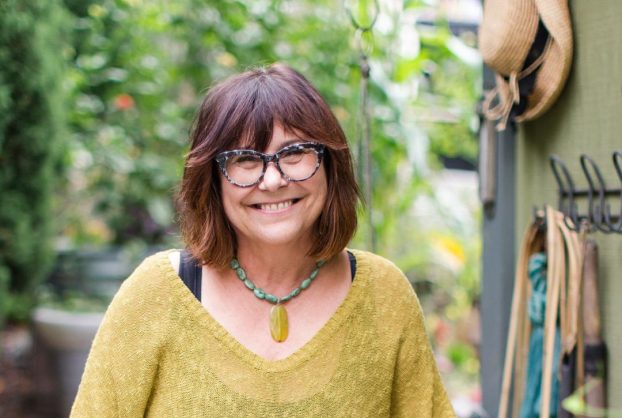
Oh my gosh, Slow Flowers Podcast listeners, you are in for a wonderful treat today because my guest is one of my lifelong friends and dearest sister in all sorts of horticultural, floral and artistic adventures in this world. It is my deepest privilege to introduce you to artist and designer, writer, editor and educator Lorene Edwards Forkner.
Lorene is a columnist for the Seattle Times weekly gardening column called GROW, along with her colleague Colin McCrate of Seattle Urban Farm Co. She is author of five garden books, including The Timber Press Guide to Vegetable Gardening: Pacific Northwest, and Handmade Garden Projects, bestselling titles from Timber Press.
Lorene owned a popular and beloved boutique specialty nursery in Seattle for more than a decade, called Fremont Gardens; she has served on the boards of a number of horticultural organizations, has edited a horticulture journal and is the designer of two gold medal display gardens at the Northwest Flower and Garden Festival.
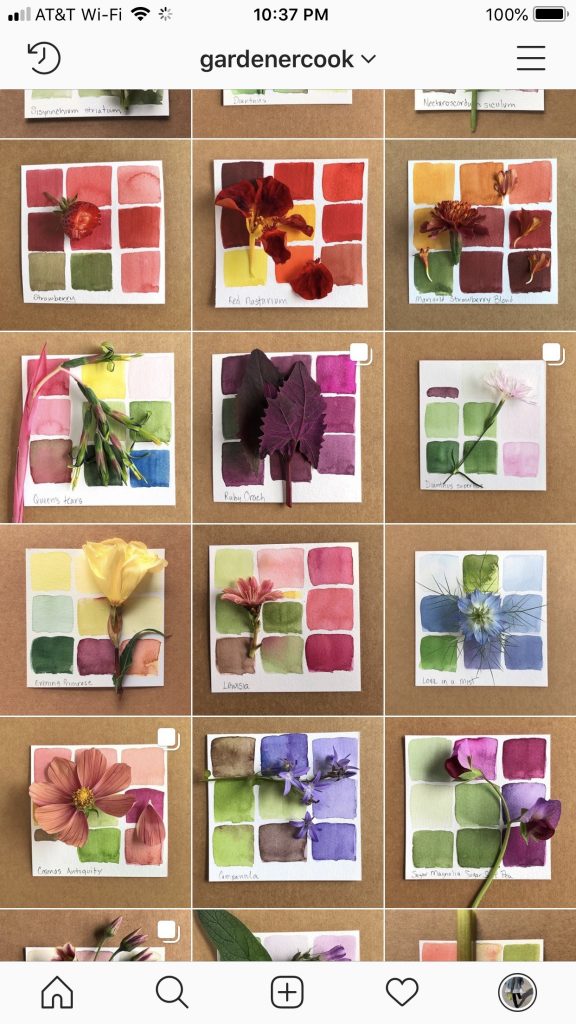
Most recently, Lorene’s creative life can be found on Instagram, where @gardenercook she is in the 2nd year creating and sharing a series called “Seeing Color in the Garden.”
She started this project on April 3, 2018 as part of #the100dayproject as #100DaysofSeeingColorintheGarden. She continued her series through the subsequent months and this past April 2019, kicked off #Another100 DaysofSeeingColorintheGarden, which concludes today, July 10th.
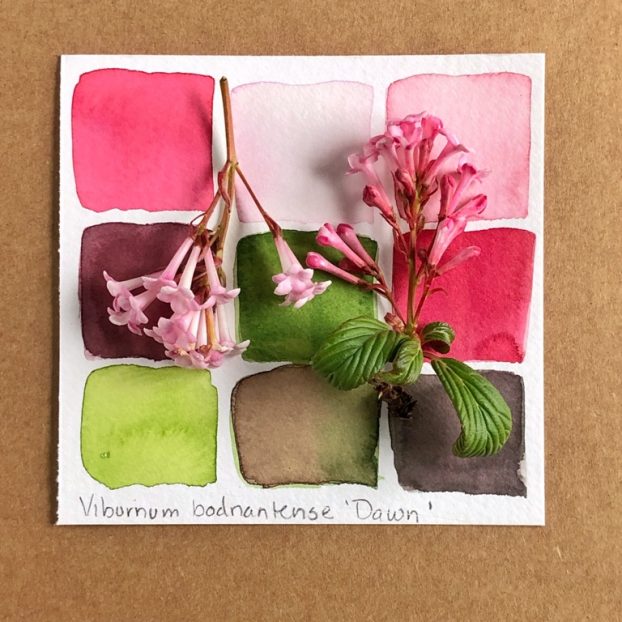
So our timing is perfect to sit down with Lorene and learn more about this visually engaging, spiritually uplifting creative project. I’m so happy that you are joining my chat with this highly intuitive observer of color in nature, in plants, in flowers and even in the kind of organic objects you might pick up on a walk and drop in your pocket.
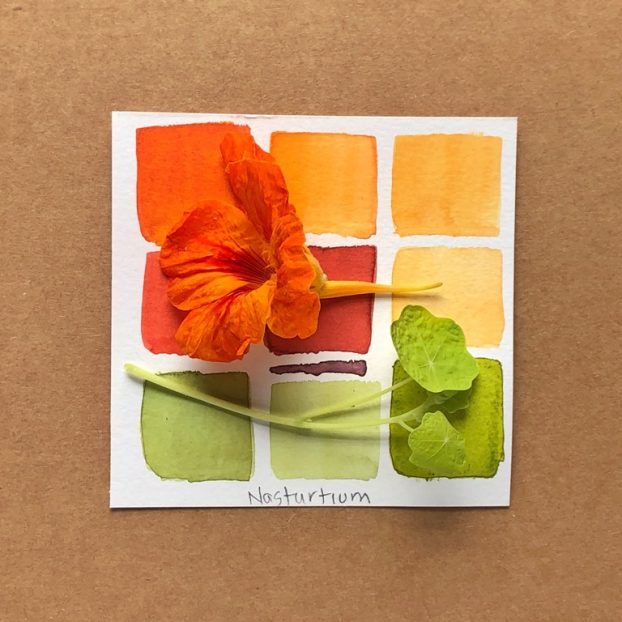
When she kicked off #100 days of seeing color in the garden, Lorene wrote this:
“And so it begins. #the100dayproject is here and so am I—well, sort of. These days life is charged with loss and grief on many levels. But if I’m honest with myself (& desperately trying to keep on keeping on) I have to acknowledge that without great love and joy there would be nothing to lose, nothing to grieve. So however hard, this pain is a gift.
“#100daysofseeingcolorinthegarden will be my #dailypractice starting today. My hope is that this daily interval focused on seeing my beloved garden will provide refuge and a way forward. They say that time heals. I’m curious to watch that unfold. How cool would it be (WILL it be) to witness the process playing out in real time. A powerful anchor for future losses.
“So for 100 days I will be making time to see and interpret color in my garden. It’s basically permission to pause and play.
She continues, “. . . this idea had to be something simple, intuitive, and soothing. I like to say color is my native tongue, and I’d pretty much lost all other words.
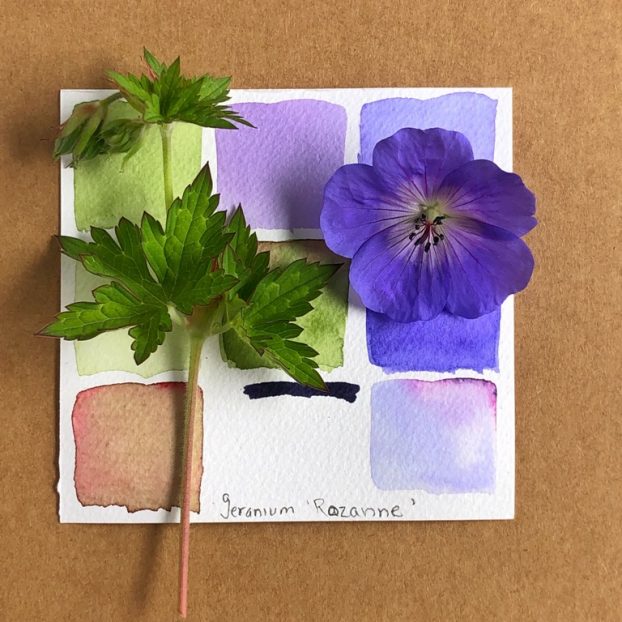
“It’s now nearly 150 days later and while I’m not still counting, I am still painting. SeeingColorInTheGarden has become a daily practice, permission to step away from work, house, garden—even play. When I sit down at my table with my oh-so-humble watercolors, a brush, and blank sheets of watercolor paper the world goes calm.
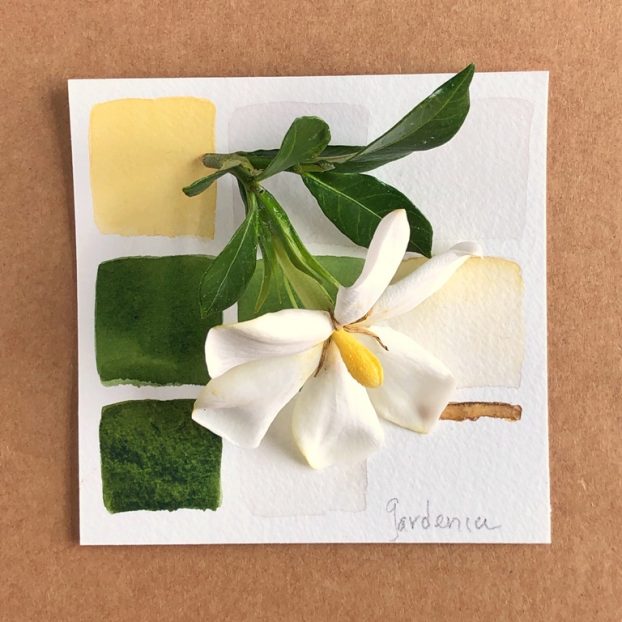
“Occasionally I get asked “HOW.” I don’t know how else to describe it but seeing with all 5 senses… things go quiet, time stops, and everything is focused on the blossom, twig, rock, or the occasional snail. My paints are nothing special, but they’re familiar to me and I feel comfortable with the visual vocabulary I’ve developed with them. For all that this project has played out in public on Instagram, it still feels strange to write about something so intimate and deeply personal. Except that, along with my finding a measure of peace, I have also found a community of people who are also in pain, stressed, or simply in need of a little colorful refreshment. A chromal chord has been struck.
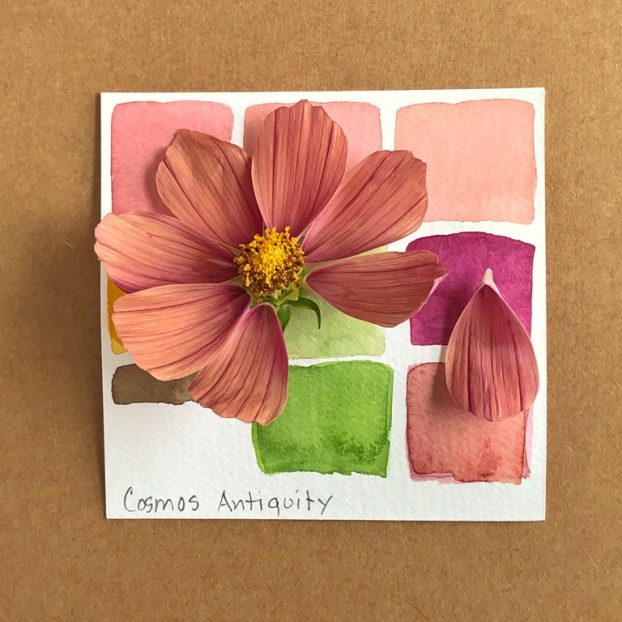
She concludes: “At the end of the day, the swatches and test strips are my secret sauce. A record of how I hunt and peck and forage for the right color. The paintings themselves without their subject are pretty flat and lifeless compared to the energy of painting + plant. But these little swatch strips please me to no end.”
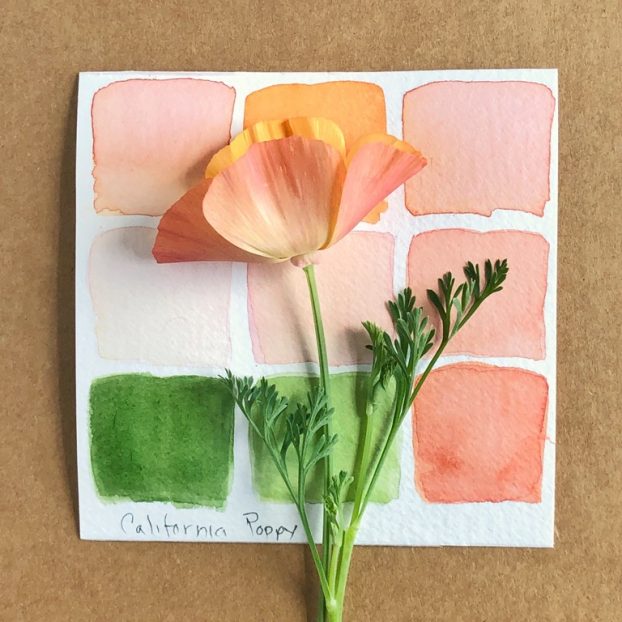
Find and follow Lorene Edwards Forkner at these social places:
A Handmade Garden Blog. Sign up for Lorene’s newsletter here.
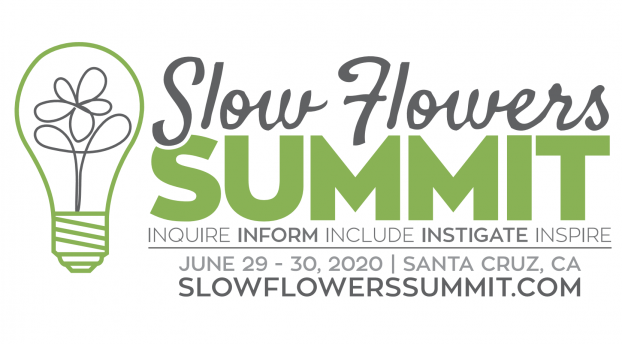
THANK YOU for joining me today as I indulged in an entirely inspiring conversation with a dear and personal friend. As Lorene Edwards Forkner and I discussed, she has agreed to come to the 4th Annual Slow Flowers Summit, which takes place June 29-30, 2020 in Santa Cruz, Calif. In fact, Lorene is the first featured presenter we’re announcing for 2020. I’ll have much more to share about her presentation at the Summit and about what you can expect to experience as the planning evolves.
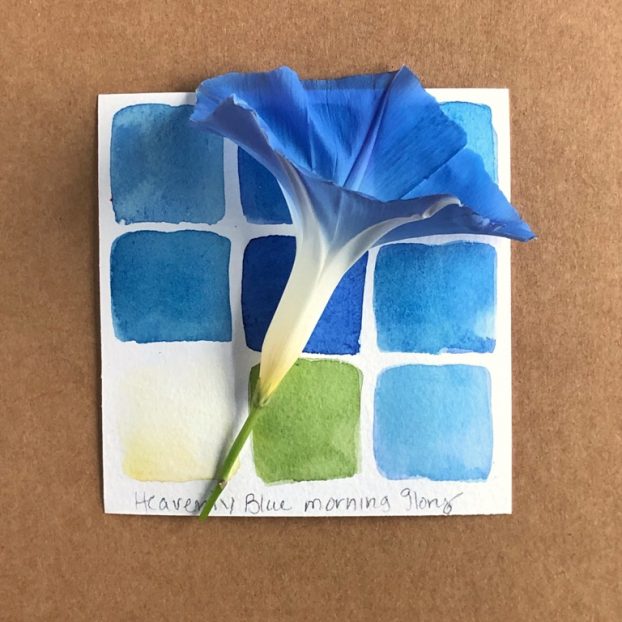
For now, I urge you to find a set of watercolors and begin to emulate the daily or even weekly practice of looking at flowers, petals, pods, leaves, bark and other minute details from your own environment in a new way — to let the color palette of nature speak to all of your senses.

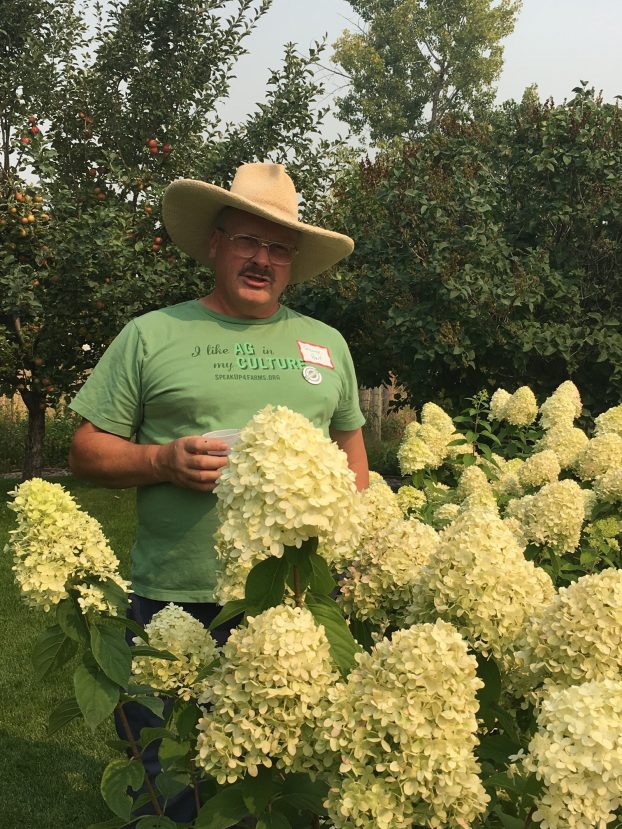
Our theme for 2019 – Fifty States of Slow Flowers – continues today with George Hart of Hart’s Garden & Nursery in Missoula, Montana.
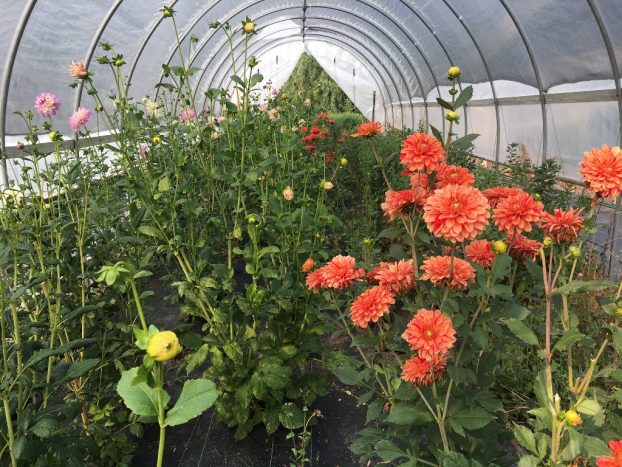
I met George and Marcia Hart in September 2017 when they hosted a lovely gathering for Slow Flowers members in Western Montana. What a fabulous experience getting to see where they live and farm, and to connect with an incredible community of growers and floral designers who are bringing local flowers to Missoula and beyond.
Harts Garden and Nursery grows tulips, irises, peonies, delphinium, dahlias, chrysanthemums, liatrus, rudbeckia, zinnias, hellebores, lilies and several kinds of decorative grasses.
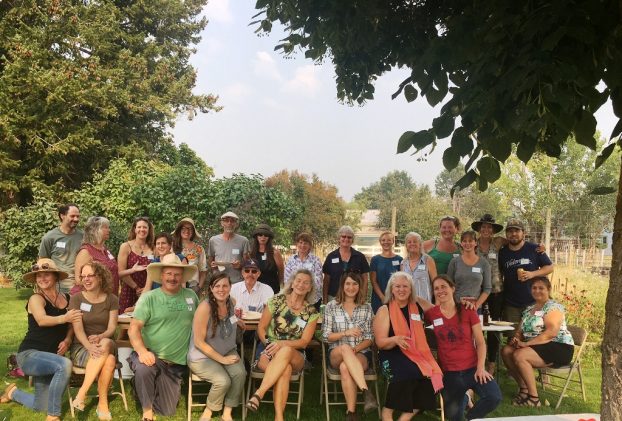
The Harts’ mission is to offer attractive, locally-grown flowers and bouquets to residents and businesses of Missoula and Western Montana. They offer several locally-grown varieties of lily bulbs for sale at area farmers’ markets, as well as perennials well-suited to Western Montana. I’m so pleased that George agreed to jump on the line with me this week to talk about what’s happening in this community, as well as give you a preview of an event on September 27th when I’ll return to Hart’s Garden — and you’re invited.
Here are the details:
MONTANA FLORISTS ASSOCIATION Annual Convention
Fri., Sept. 27, 7:15 p.m. Farm Tour & Dinner
HARTS GARDEN & NURSERY, Missoula, Montana
Debra Prinzing will join Slow Flowers members Harts Garden & Nursery as they host a local-flowers reception during the Montana Florists Association annual convention. The Slow Flowers members are invited to join us! As George Hart says: “$10 buys dinner and contacting me puts your name on the list. This is a chance for Montana flower farmers to learn and dine with fellow farmers and florists who care about local, Montana-grown blooms! For more information or to sign up, please contact George Hart atmghart@bresnan.net or call: 406-396-8245.
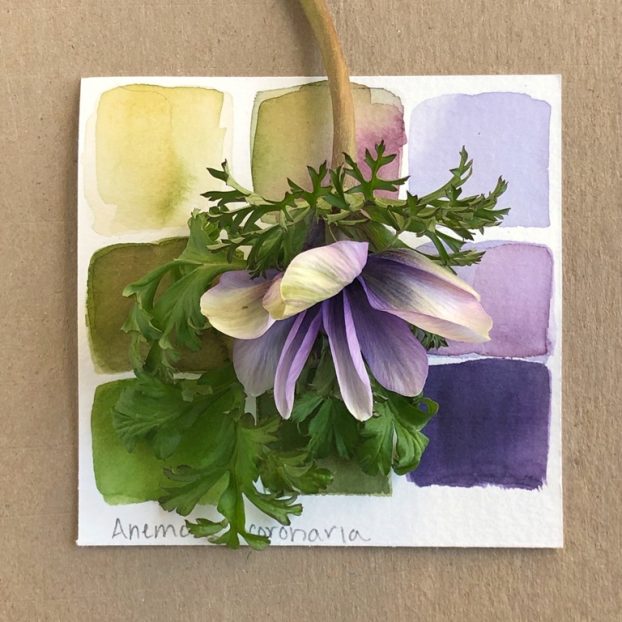
Thank you for taking the time to pop in the ear buds and join the Slow Flowers Podcast. Thank you to our entire community of flower farmers and floral designers who together define the Slow Flowers Movement. As our cause gains more supporters and more passionate participants who believe in the importance of the American cut flower industry, the momentum is contagious. I know you feel it, too. I value your support and invite you to show your thanks and with a donation to support my ongoing advocacy, education and outreach activities. You can find the donate button in the column to the right.
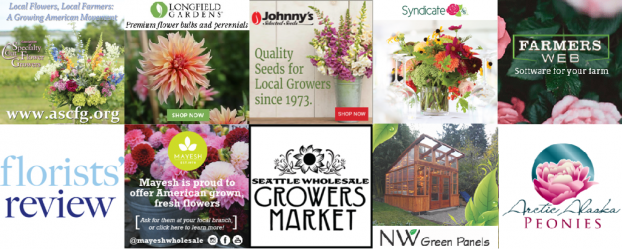
THANK YOU TO OUR SPONSORS
Florists’ Review magazine. I’m delighted to serve as Contributing Editor for Slow Flowers Journal, found in the pages of Florists’ Review. It’s the leading trade magazine in the floral industry and the only independent periodical for the retail, wholesale and supplier market. Take advantage of the special subscription offer for members of the Slow Flowers Community.
Association of Specialty Cut Flower Growers. Formed in 1988, ASCFG was created to educate, unite, and support commercial cut flower growers. It mission is to help growers produce high-quality floral material, and to foster and promote the local availability of that product. Learn more at ascfg.org. The upcoming regional conference takes place this weekend — Sunday, July 14 & Monday, July 15 — in Maine and is called “In the Thick of It.” The gathering features flower farm tours, networking with other growers, and bonus tours of Johnny’s Selected Seeds and the Coastal Maine Botanical Gardens.
Johnny’s Selected Seeds, an employee-owned company that provides our industry the best flower, herb and vegetable seeds — supplied to farms large and small and even backyard cutting gardens like mine. Find the full catalog of flower seeds and bulbs at johnnysseeds.com and check out my past articles featuring the wisdom and voices of flower farmers.
Longfield Gardens, which provides home gardeners with high quality flower bulbs and perennials. Their online store offers plants for every region and every season, from tulips and daffodils to dahlias, caladiums and amaryllis. Spring bulb season is almost here – my tulips are poking out of the ground already! Visit Longfield Gardens at longfield-gardens.com

The Slow Flowers Podcast has been downloaded more than 492,000 times by listeners like you. Thank you for listening, commenting and sharing – it means so much.
I’m Debra Prinzing, host and producer of the Slow Flowers Podcast. Next week, you’re invited to join me in putting more American grown flowers on the table, one vase at a time. And If you like what you hear, please consider logging onto iTunes and posting a listener review.
The content and opinions expressed here are either mine alone or those of my guests alone, independent of any podcast sponsor or other person, company or organization.
The Slow Flowers Podcast is engineered and edited by Andrew Brenlan. Learn more about his work at soundbodymovement.com.
Music Credits:
Castor Wheel Pivot; Betty Dear; Gaenaby
Blue Dot Sessions
http://www.sessions.bluehttps://creativecommons.org/licenses/by-nc/4.0/
Lovely by Tryad
http://tryad.bandcamp.com/album/instrumentals
http://creativecommons.org/licenses/by-sa/3.0/
In The Field
Music from: audionautix.com









March 4th, 2020 at 9:15 am
[…] Listen to Lorene Edwards Forkner on the Slow Flowers Podcast (Episode 409) July 2019 […]
April 20th, 2022 at 7:42 am
[…] is a past guest of the Slow Flowers Podcast and she was a featured presenter at the 2021 Slow Flowers […]